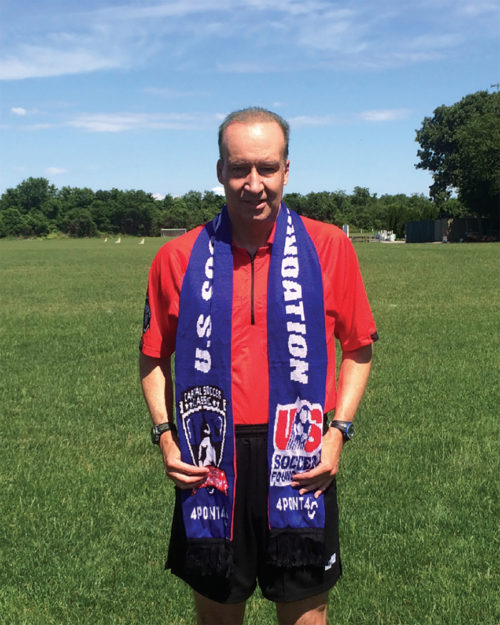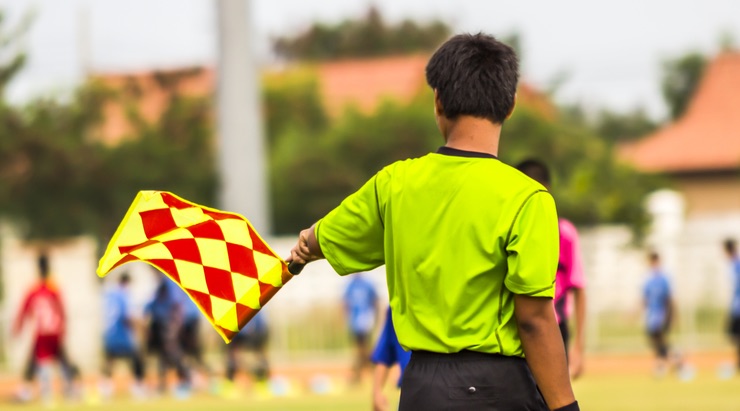Embarrassing Questions at Youth Ref Clinic
Being a referee should be a great learning experience for our youth — but sometimes what we are teaching is the worst side of an adult’s immaturity.
Ref Randy Vogt has refereed 10,000 games and shares his views on how parents and youth soccer coaches can impact young referees.
Youth Soccer News: I was asked to give some words of encouragement to young refs who would be refereeing their club’s intramural games. I did it in 2015 and must have done okay as I was asked by the club back this month.
The 30 or so refs were from 10 to 14 years old and they ref players aged 6 to 12. Two refs to a game, one on each touchline, on small-sided fields, the largest which is 65 x 35 yards.

I was stunned by many of their questions.
Although they did have questions on the rules, half of their questions centered on controlling adults, whether it is the coaches or the player’s parents on the spectator side.
One 11-year-old girl raised her hand and started to talk about how her coach, in a game she was playing in two years before, got into a big argument with the opposing coach.
Related Soccer News: RANDY VOGT: DONATES $10,000 HONORING HIS 10,000 GAMES
My advice was for the ref to tell the coach, if he or she yelled at the ref, to simply say, “Coach, we are trying our best as refs just as you are doing as a coach. The game will go smoother if you concentrate on coaching your team rather than commenting on the officiating.”

And, if the coach continues to say derogatory things about the officiating, for the ref to stop the game and get the field coordinator, an adult, involved.
The field coordinator should also become involved when a parent on the spectator side starts yelling at the refs. One boy then raised his hand and criticized the club for having one field coordinator per complex rather than one per field.
The field coordinator should also become involved when a parent on the spectator side starts yelling at the refs. One boy then raised his hand and criticized the club for having one field coordinator per complex rather than one per field.
So my question for these young refs was if everybody who returned as a ref had been yelled at the season before and they remembered that quite clearly, why did they return?
The answer was for the money of $10 per game, which takes an hour to play.
But nobody was there who came to the same discussion I led two years ago as all those refs must have found better things to do than getting yelled at by adults.
And, another question, which could not be answered that night was how many kids –upset that they were yelled at — refereed for just one season and decided to not return as refs, again no matter what they were being paid.
A good solution for a coach, concerned if the refs were missing fouls, would be to have a pleasant discussion with the refs and field coordinator that more fouls needed to be whistled on both teams. This conversation could occur in-between periods (many of these small-sided games are now played in quarters).
I make mistakes, you make mistakes, everybody makes mistakes but we are trying our best. It’s an extremely sad commentary when young refs in elementary and middle school are being yelled at by overly exuberant parents and grandparents more than double their age, in front of their own children and grandchildren. So let’s all be better behaved on soccer fields, for the sake of our youth players as well as the refs who do their games.
Randy Vogt, the author of Preventive Officiating, has officiated over 10,000 games.






